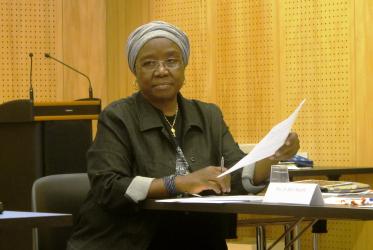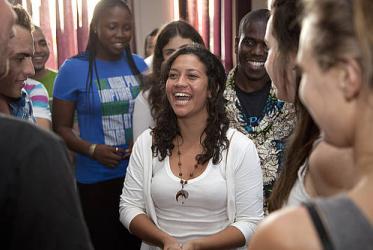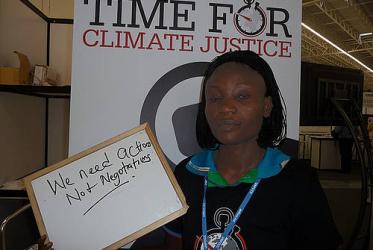Displaying 41 - 58 of 58
Ecumenical organizations set to promote climate justice at COP 20
01 December 2014
Ecumenical panel promotes economic justice
17 January 2014
Churches calling for a day of fasting for the poor
18 November 2013
Lutherans call for day of fasting around climate change meetings
13 November 2013
Letters to the future: Eco-justice visions in South Africa
13 December 2012
Nigerian youth adopt eco-justice for urban neighbourhoods
28 November 2012
In Myanmar, eco-justice flourishes even in challenging settings
31 October 2012
40 days – no emissions? Swedish urbanite lives the concept
14 August 2012
Ethics and human rights focus for Rio+20 summit
22 March 2012
Youth promise active involvement for environmental justice
14 December 2011
Before Durban climate talks, Brazilian ecumenists think about Rio+20
23 November 2011
Timid hope at end of climate negotiations in Cancun
13 December 2010










